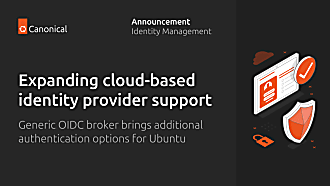Thibaut Rouffineau
on 31 May 2016
Snaps on NAS: IOT apps for your private network
QNAP selects snaps and Ubuntu to bring IOT apps to its NAS

NAS have been around for a while, and have been used across a wide array of use cases from media servers in tech-savvy household to remote file server by SMBs. QNAP have been a pioneer in this space offering an appstore for their NAS, with hundred of apps: local web servers (WordPress, Drupal), Media server (Kodi), Cloud backup …
The rise of connected homes and buildings means an increasing number of sensors, smart meters,security cameras, plugs being connected to the local network… And therefore to the local NAS. This means NAS are seeing a new lease of life, and can now start to act as local IoT gateways, offering a great combination of local storage and computing power. A range of IoT applications are particularly suited to run on such machines that require local computing for fast decision making and large data storage for auditing or future prediction reasons. Video surveillance applications for example can use local movement detection algorithms to alert of any intrusion, cost effectively store all the video footage locally for audit purposes, back up to the cloud only relevant footage or summaries.
By adopting snaps as the preferred application format for their NAS going forward QNAP is looking to surf on the growing popularity of snaps across Ubuntu desktop and Ubuntu Core in IoT. They’re keen to leverage universality of snaps which can be deployed from Ubuntu desktops to Ubuntu Core IoT Gateways. But also the simplicity of creating snaps, with snapcraft a tool that makes it simple to build secure, contained applications from source easily.



